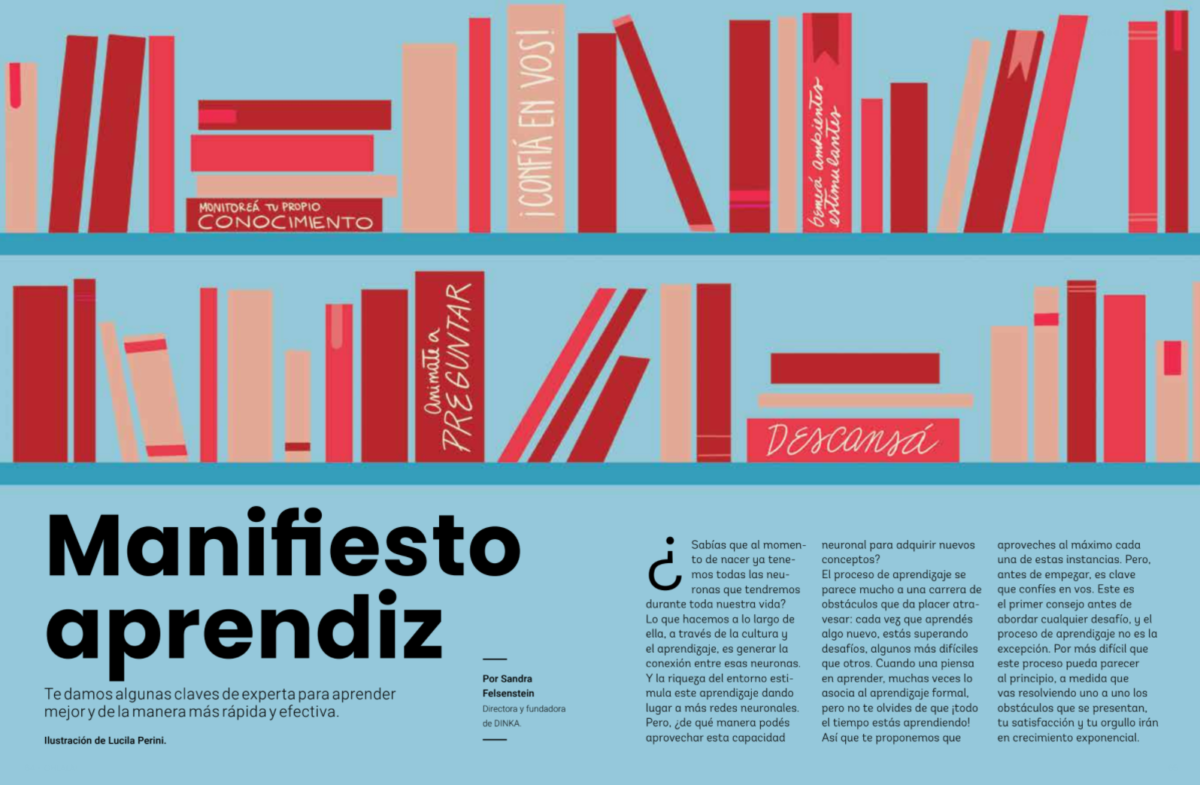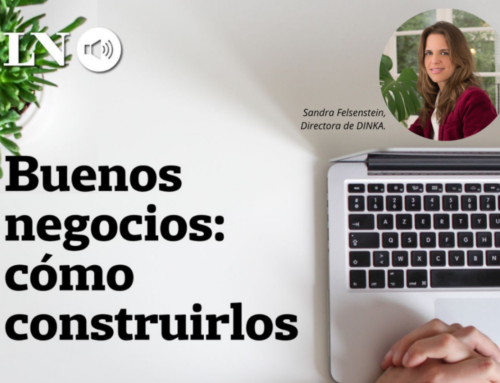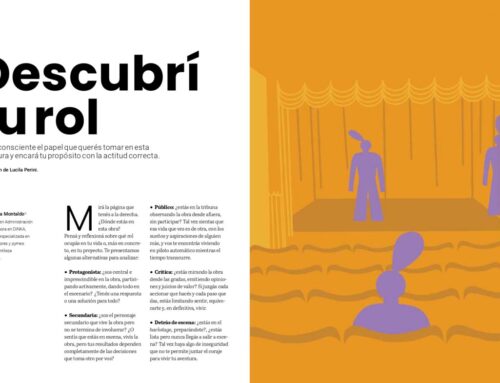Did you know what at the time of birth we already have all the neurons that we will have throughout our lives? What we do throughout it, through culture and learning, is to generate the connection between those neurons. And the wealth of the environment stimulates this learning giving rise to more neural networks. But how can you take advantage of this neuronal capacity to acquire new concepts?
The learning process looks a lot like an obstacle career that gives pleasure to cross: every time you learn something new, you are overcoming challenges, some more difficult than others. When you think about learning, many times you associate it with formal learning, but don't forget that you are learning all the time! So we propose that you take full advantage of each of these instances. But, before starting, it is key that you trust you. This is the first advice before addressing any challenge, and the learning process is no exception. As difficult that this process may seem at the beginning, as you solve the obstacles that arise, your satisfaction and your pride will be in exponential growth.
- It will generate stimulating environments. That they are welcoming environments, with diverse objects to explore, different sizes and colors that stimulate your learning ability, your permeability to incorporate new knowledge. On the other hand, take care that there are no television distractions or other devices that generate neglect. Do not forget to silence your cell phone or directly get it out of the room you are in. Soft music can collaborate both to concentration and to attenuate annoying noises. And, linked to this, communicate to others your need for tranquility and time to concentrate.
- Monitor your own knowledge. Being aware of what you know and what you need to learn will help you find and find more easily what you are needing to know.
- make time. It is not easy to find holes to learn, among the enormous amount of things you surely do during the day. But just thinking about the speed with which things are changing and our knowledge becomes obsolete, the need to constantly incorporate new learning is clear, to always stay updated.
- Encourage to ask. The boys are usually more familiar with the question instance, and many times there is a false belief that adults have to constantly demonstrate everything we know and hide what we do not know. There is a Danish saying about it: "Who is afraid to ask, ashamed to learn".
- Exercise your frustration tolerance. Learning also means wrong. This should not be a frustration, but on the contrary, the opportunity to generate learning. Always remember that not knowing something, offers you the enormous possibility of learning it!
- Rodeate of different people. People of different profiles, interests, tastes and opinions. This favors the exchange and shared learning leveraging results.
- Practice. The only way to become good at something is practicing, again and again. Practice with other many times generates better results than doing it individually. In addition, practice what you already know encourages confidence in yourself and releases creativity.
- Desafiate. Any learning situation involves leaving the comfort zone. It is important to look for knowledge that really complement our "safe zone", and not always continue to cultivate our "strong area."
- Give yourself the time and space to process new learning. Before continuing, make sure that these new experiences really decant in you and make sense. For this:
- Evaluate whether or not you agree with what you have learned.
- Take it to another person. This always helps set concepts.
- Think what questions arise and write down.
- I wrote what you understood and what was not entirely clear.
- Link learning with emotions. As Benjamin Franklin once said: "Tell me and forget it, teach me and I remember it, involve me and learn it". We learn much more and much better when we manage to make that link of new knowledge with our emotions. This makes us internalize, understand and remember much better. For this:
- I put the body: get involved, I lived knowledge. Do physical activities, if possible, that help set concepts. From repeating out loud to acting a situation: everything helps.
- Try to look for parallels with your real life, with your daily life.
- Connect what you learned with your interests.
- I chose the strategy that serves you the most. Not everyone incorporates knowledge in the same way. There are people who learn more from concepts and definitions and others who are more effective in empirical form. There are many processes and techniques that can help you during your learning path. Just to mention some: motivation, repetition, memorization, regulation and review. But there are many more!
- Know differently. According to the neuroscientist Mariano Sigman, everyone can learn, but not the same or in the same way. Each has their own cognitive skills. But not only do you have to try what is good for you, but also what you like, which sometimes may not coincide. And, above all, do not let anyone tell you not to try. Any person, at any time in his life, can learn and improve.
- Rest. Sleeping is not only essential for our brain to give up as it should and to be prepared to acquire new knowledge, but to sleep after having learned help consolidate the new teachings. For this reason, researchers recommend reviewing the new issues acquired before going to sleep.
To apply the Feynman method
It is one of the most efficient techniques to learn. He proposes that, after studying a topic, turn everything learned in a notebook, as if you were told to another. Thus you discover what was not clear to you and return to the source to study until you can develop it without problem. Then, I explained everything again, but this time using your own words. If your explanation is confusing, it means that you did not understand well and it will be necessary to return to the sources.
Toolbox
Tools to continue deepening:
- PODCAST:Luis García Carrasco, the art of memory.
- TED talks: Nicolás Mango Marri, learning as a way of life, Mónica Guitart Coria, allowed to laugh, we are in class.
- Book: Mariano Sigman, the secret life of the mind.
- YOUTUBE: Javier Muñiz has a video playlist: study techniques.








